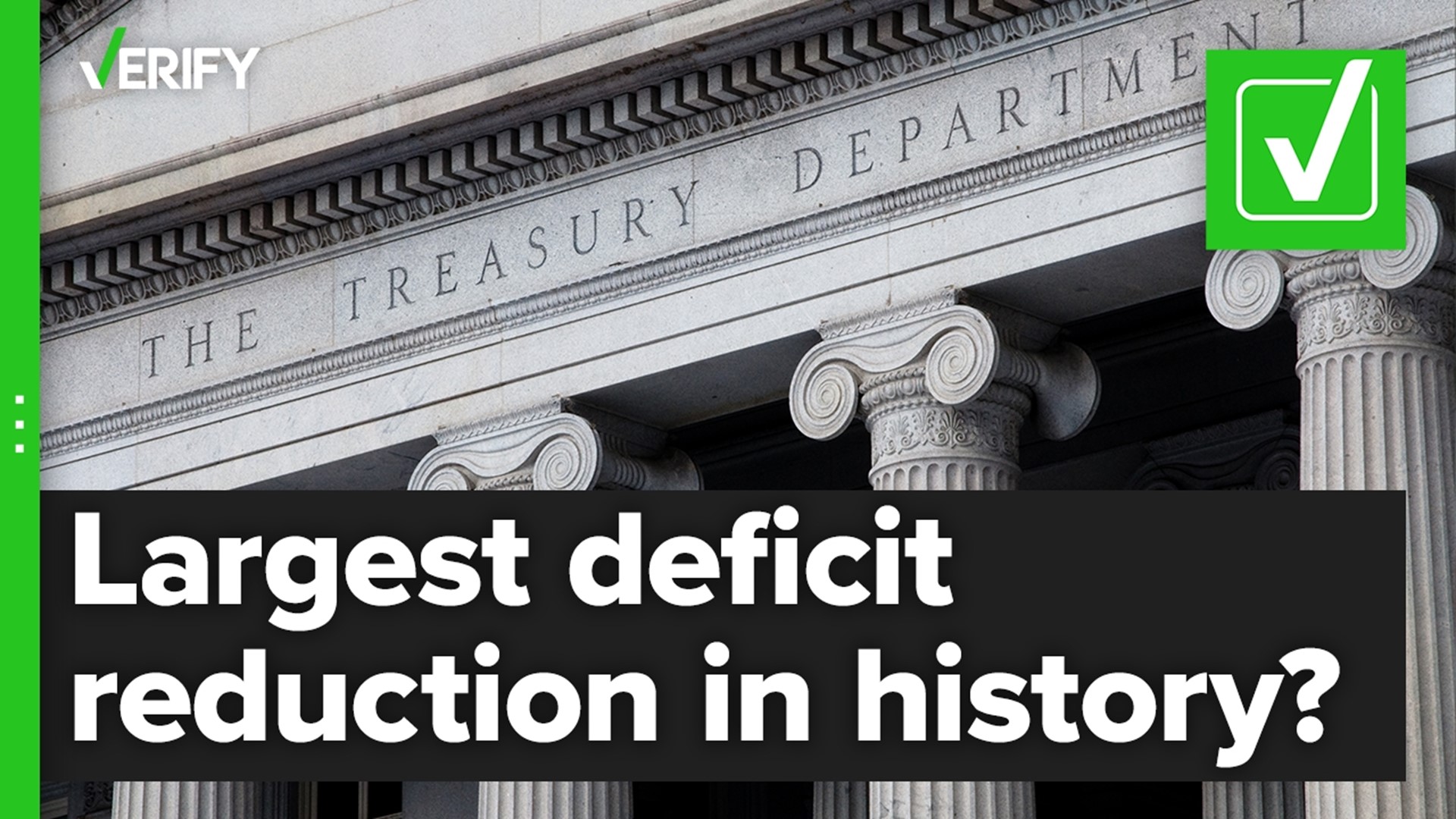On Monday, President Joe Biden unveiled his proposal for the next federal budget.
Though Congress has the final say in the annual budget, presidents create a proposal highlighting their fiscal priorities. Then, the president typically spends time advocating for their plan to the public, arguing for those priorities.
While promoting his latest proposal, Biden tweeted, “This year, my administration is on track to cut the deficit by more than $1.3 trillion… that would be the largest one-year reduction in the deficit in U.S. history.”
THE QUESTION
Would a $1.3 trillion reduction in the deficit be the largest single-year reduction ever?
THE SOURCES
THE ANSWER
Yes, if the deficit shrinks by $1.3 trillion this year, that will be the largest single-year reduction in history.
WHAT WE FOUND
Both the Federal Reserve and the Congressional Budget Office (CBO) track how much money the federal government takes in each year, and how much it spends. The Fed has records dating back to 1901, and the CBO dating to 1962.
If the government makes more than it spends, there’s a budget surplus. Since 1962, there have only been five years with a surplus, and none since 2001.
More commonly, the government spends more than it takes in. That’s a deficit, and it results in the U.S. borrowing money to make up the difference, which in turn adds to the federal debt.
According to the Fed and the CBO, the year in which the deficit shrank the most was 2013. In 2012, the budget was nearly $1.08 trillion in the hole, and in 2013, it was just under $679.8 billion. The deficit decreased by roughly $396.8 billion, more than in any other year in history.
If the deficit drops by $1.3 trillion in 2022 like Biden projected, it would indeed be the largest deficit reduction in American history, by a big margin.
The Fed and CBO track numbers on a fiscal-year basis, with the fiscal year ending on Sept. 30. So we won’t really know if Biden’s projections for 2022 are accurate until at least October.
But budget experts VERIFY spoke with agreed it’s likely the deficit reduction could wind up being more than a trillion dollars. However, they said that drop is mostly due to COVID-related spending programs expiring.
“It's not really due to any particularly aggressive policy action to, say, raise more revenue than we would have otherwise, or spend less. It's mostly just a factor of temporary things,” said Alex Muresianu, a federal policy analyst for the Tax Foundation.
“We had deficits that were over $3 trillion [in 2020], and one that was $2.8 trillion [in 2021]. That was as a result of a huge recession, and trillions of dollars that we were spending to fight COVID. So we will be dropping for sure. The deficit will be closer to a trillion dollars this year,” said Maya MacGuineas, president of the Committee for a Responsible Federal Budget, a non-profit group. “But that doesn't come from policies to reduce the deficit.”
More from VERIFY: No, Congress members did not give themselves a 21% pay raise in 2022

